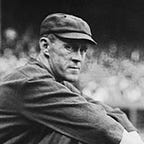The Dilemma of Manny Pacquiao
Manny Pacquiao is a proselytizing homophobe who disseminates his bigotry with self-righteous piety and a beatific grin.
Manny Pacquiao is an unrelentingly generous man. He has given untold millions to feed, educate, house and heal his countrymen. He cares deeply for the poor, the vulnerable, the disenfranchised, the dispossessed.
Manny Pacquiao is a sinner trying to find his way. He will tell you that prior to finding his faith, he transgressed against his wife, his family, his friends. He was a drinker; a gambler; a womanizer.
Manny Pacquiao is a kind and respectful person. He is soft-spoken, modest, and quick with praise. He’s good-humored and polite. He sells his fights with a smile, not a scowl (his idea of trash talk is “[He’s] a good fighter. This will be a tough fight”). He asks no quarter in the ring, but is quick to grant it for fear of causing an opponent lasting harm.
Manny Pacquiao is the most famous man in his country. He’s earned it. He ran and punched and bled his way out of abject, crushing poverty to become one of the highest-paid athletes in the world. He is one of the two best boxers of his generation; one of the best ever in his chosen endeavor. He came from nothing, and earned everything.
Manny Pacquiao counts among his personal friends Philippines President Rodrigo Duterte, a strongman whose brutal, extrajudicial crackdown on the illegal drug trade has left tens of thousands dead. Pacquiao, an admitted drug user in his youth, publicly revers the President, telling Australia’s ABC News that he believes Duterte was “anointed by God to discipline the Philippine people.” This might be dismissed as another ‘uniformed jock’ tweeting out benighted claptrap, but Manny Pacquiao isn’t a provincial athlete parroting a charismatic demagogue. Manny Pacquiao is a senator, a man who will one day run for the presidency of his country, and a man who fully supports the criminalization of abortion while endorsing the state-sanctioned mass killing of Philippine citizens.
This Saturday, Pacquiao, 40, challenges Keith “One-Time” Thurman, for Thurman’s WBA Welterweight title. Thurman, 30, was as recently as 2017 considered the best fighter in the world in his weight class. Injuries, inactivity (Thurman was away from the sport for nearly two years, following multiple surgeries), and a somewhat lackluster return to the ring in January against rugged journeyman Josesito Lopez have conspired to make this a rare “pick ‘em” fight.
That Pacquiao, well into his third decade as a fighter, is considered a slight betting favorite by odds-makers and, at worst, the slightest of underdogs by analysts, borders on astonishing. Thurman is bigger, stronger, and, perhaps most importantly, much younger.
But Pacquiao, even in middle age, might still be better.
Once a whirling dervish of violent intent, the “Pac Man” is no longer the elemental force of his youth — but he’s aged extraordinarily well (despite a that desultory 2015 performance against Floyd Mayweather in the richest prizefight ever staged), and remains one of the five or six best welterweights in the world (as does Keith Thurman).
It’s true Pacquiao has made concessions to age: The 12-punch combinations, delivered in bunches and blurs, are a thing of the past; in their place, the well-chosen pot-shot, the crisp, three-punch fusillade. Gone is the electrifying recklessness — the perpetual charge forward, the punches thrown while airborne. In their place, a mastery of distance, pace, and timing (ably demonstrated in his last fight against a befuddled and reluctant Adrien Broner). The foot speed that allowed Pacquiao to dart in and out of the breech is diminished but more efficient, providing a sturdier base of attack, a more reliable avenue of retreat (rarely used, but there if he should need it). The overwhelming feral aggression has ceded to patience and precision — delivered with still-elite hand speed. Manny Pacquiao, even as his 41st birthday approaches, remains a marvel, a delight to watch.
And therein lies the dilemma of Manny Pacquiao.
Do you cheer the man who has inspired millions — tens of millions — with his tenacity, kindness, and humility? The man who has funded churches, medical facilities, scholarships, and more than a thousand homes for his country’s poorest and most vulnerable?
Or do you shun the man who has said “If you have male-to-male or female-to-female (relationships), then people are worse than animals.” The man who aligns himself with a leader who encourages lethal vigilantism, who believes it is the executioner’s job to render judgement?
Do you root for the man who, after giving everything he can to the most brutally rapacious sport there is for 25 years, is still capable of thrilling with his heart and skill?
Or do you root against the strongman’s acolyte? A man who denies, in the face of overwhelming evidence, thousands of extrajudicial killings? The would-be successor to lead a brutal regime?
Is it possible to cheer for the fighter while abhorring the politician?
Is it rational to shun the artist while celebrating his artistry?
Do we permit ourselves to revel in the joy this man can inspire inside a boxing ring, when we know of the threat he could pose outside of it?
The dilemma of Manny Pacquiao.
— — — — — — — — — — — — — — — — — — — — — —
After the Bell
The extrajudicial campaign of Rodrigo Duterte against the illegal drug trade has now claimed as many as 27,000 lives. According to the New York Times, Amnesty International last week described Mr. Duterte’s war on drugs as “nothing but a large-scale murdering enterprise.” The United Nations’ Human Rights Council voted last Thursday to ‘examine’ the killings, a preamble to potentially more serious action next year.
